Interest Free Financing Up To 36 Months
WE DO NOT ONLY PUMP YOUR TANK - WE CLEAN IT!
Multiple Financing Options Are Available Up To 36 Months
Interest Free Financing Up To 36 Months
WE DO NOT ONLY PUMP YOUR TANK - WE CLEAN IT!
Multiple Financing Options Are Available Up To 36 Months
If you live in a property that is not connected to a centralized sewer system, you’ll have to rely on a septic system for wastewater and sewage management. A septic system consists of four main components:
A septic tank is a large underground container made of concrete, fiberglass, or plastic. It is responsible for holding and treating wastewater from a property. However, not all people with septic systems understand how a septic tank works. Knowing how a septic tank works allows you to implement proper maintenance practices. Read on to learn more about how a septic tank works and how to keep your septic tank in tip-top shape.
All the wastewater from toilets, sinks, showers, and other drains in the property flows into the septic tank through an inlet pipe. Once the wastewater is collected inside the tank, it undergoes a separation process. The waste is separated into three layers—sludge, scum, and effluent.
The septic tank provides an oxygen-deprived environment, ideal for anaerobic bacteria to thrive. These bacteria naturally occur in the wastewater and begin the process of anaerobic digestion. They break down the organic solids in the sludge and scum layers into simpler compounds through chemical reactions, reducing their volume over time.
As new wastewater enters the tank, an equal amount of treated effluent flows out of the tank through an outlet pipe. The effluent is relatively clear and contains fewer solids compared to the original wastewater. The effluent exits the septic tank and flows into a drainfield or leachfield, where further treatment occurs. In the drainfield, the effluent percolates through perforated pipes and into the surrounding soil. The soil acts as a natural filter, removing remaining impurities and harmful bacteria.
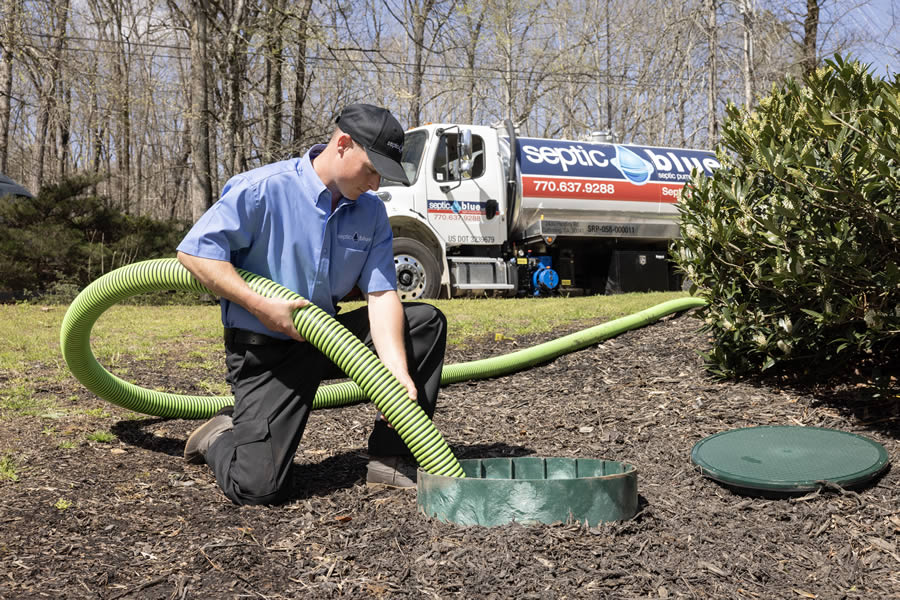
Septic tank pumping in Raleigh has never been so affordable and accessible thanks to the professionals at Septic Blue. We are…
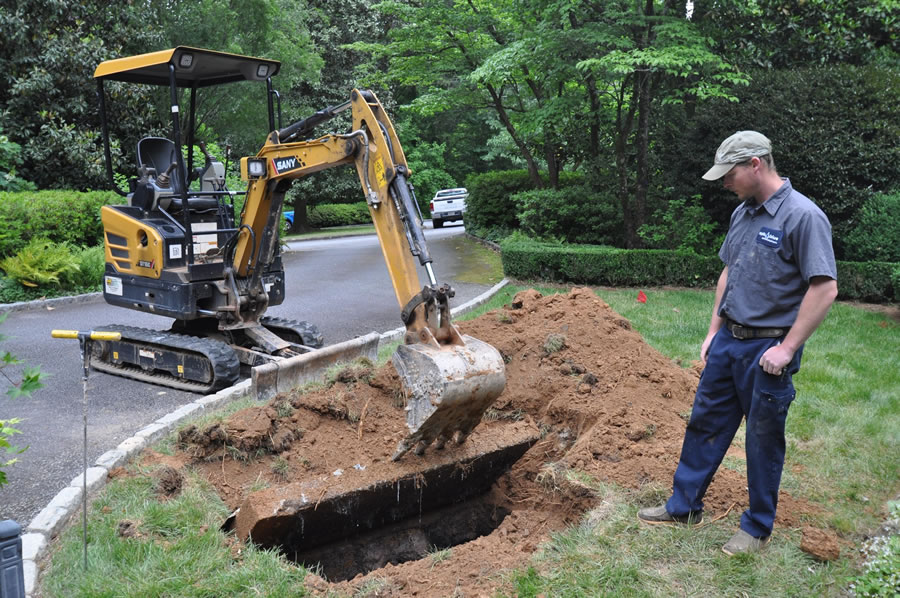
One quarter of Americans rely on septic tanks to process household waste. Most Septic Blue locations have septic tank experts who…
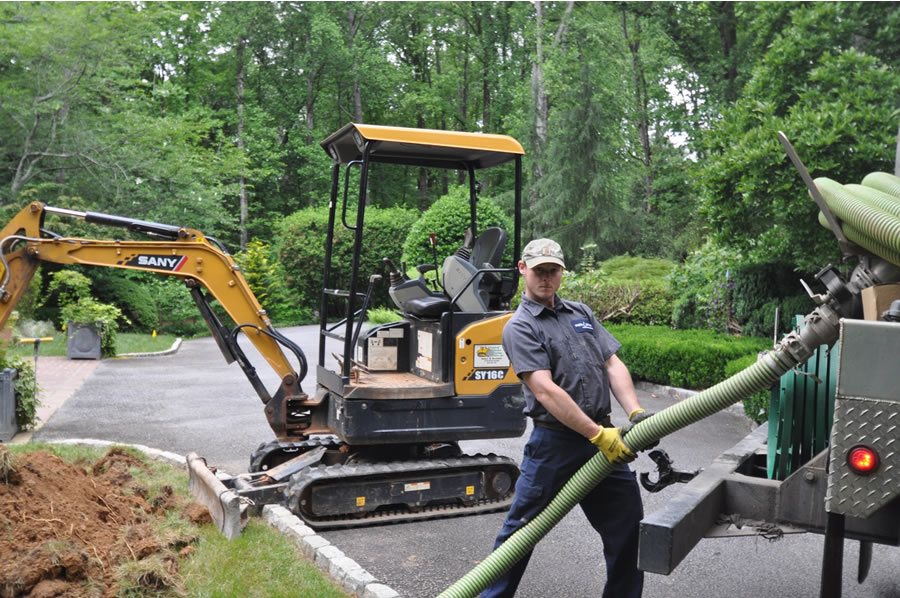
Call Septic Blue today for a second opinion. If you choose to go with Septic Blue, you'll receive $250 off your…
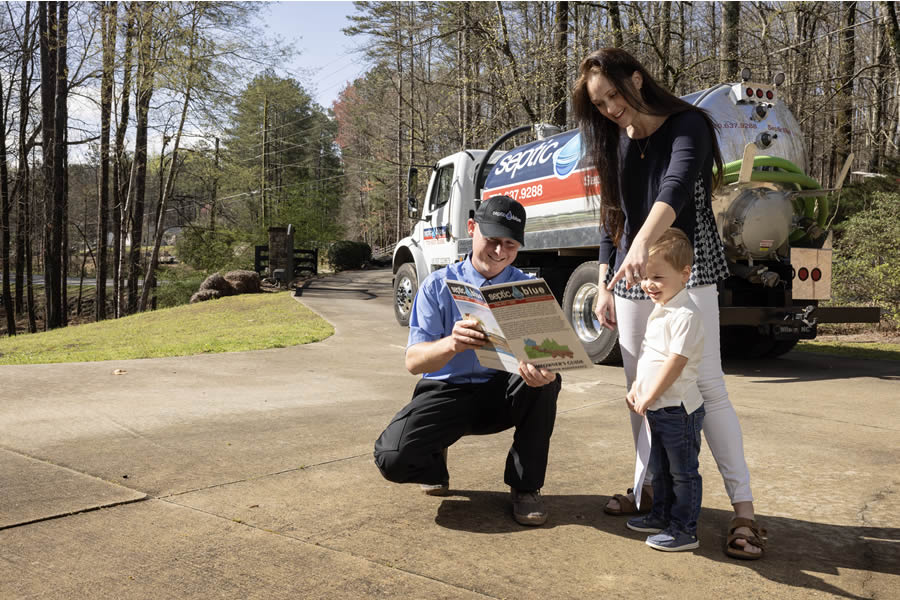
If you are a homeowner or resident in Raleigh that is among the 20 percent of households in the U.S. with…
Professional Saptic Plumbing solutions for every need. Contact Us Today!
Septic Blue of Raleigh is your go-to septic company for all of your septic tank needs. We are a well-known name for all septic-related matters, including septic tank installation, septic tank repair, septic cleaning, and more. Call us today or contact us online to schedule septic service.
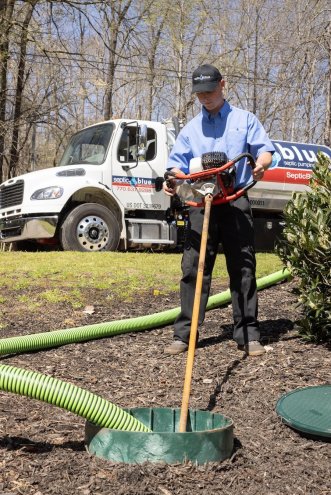
Your septic system plays a critical role in managing wastewater safely and efficiently, protecting both your home and the surrounding environment.…
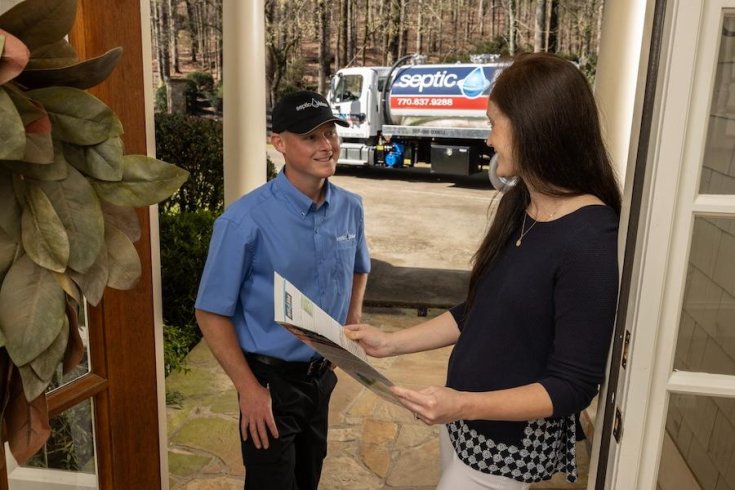
Hiring a septic company in Raleigh, NC involves more than comparing prices or scheduling the earliest appointment. Septic pumping, cleaning,…
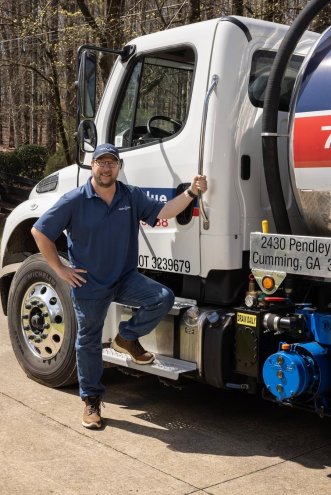
A septic system is designed to move wastewater efficiently from your home into a tank and then into the drain field.…
.webp)
Even if it often fades into the background of daily life, a septic system plays a critical role in keeping your…